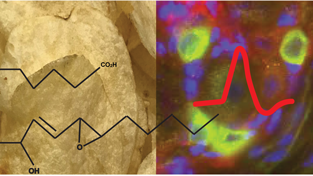When Neurons are ‘Born’ Impacts Olfactory Behavior in Mice

New research from North Carolina State University shows that neurons generated at different life stages in mice can impact aspects of their olfactory sense and behavior. The work could have implications for our understanding of neurodevelopmental processes or traumatic brain injuries in humans.
Troy Ghashghaei, associate professor of neurobiology at NC State, studies the ways neurons develop and integrate into the “circuitry” of the brain. Mice are an excellent model for study, because even in adulthood they continue to produce neurons in two regions, one of which deals with the smell, or olfactory, centers of the brain.
Working with a population of young adult mice, Ghashghaei and his team looked at olfactory neurons that were generated when the mice were either newborn or young adults. The team wanted to know if there was a difference between the function of neurons that developed at different life stages.
“One way to study the function of different populations of neurons is to shut them off during different behavioral paradigms,” says Ghashghaei. To shut off neurons, they introduced a gene into olfactory stem cells in the mice. The gene encoded a protein that would respond to a particular drug by turning off those olfactory neurons after they had matured. Thus the researchers could shut off neurons that were generated at different developmental time points.
Original post by Tracey Peake | December 6, 2016
- Categories:


